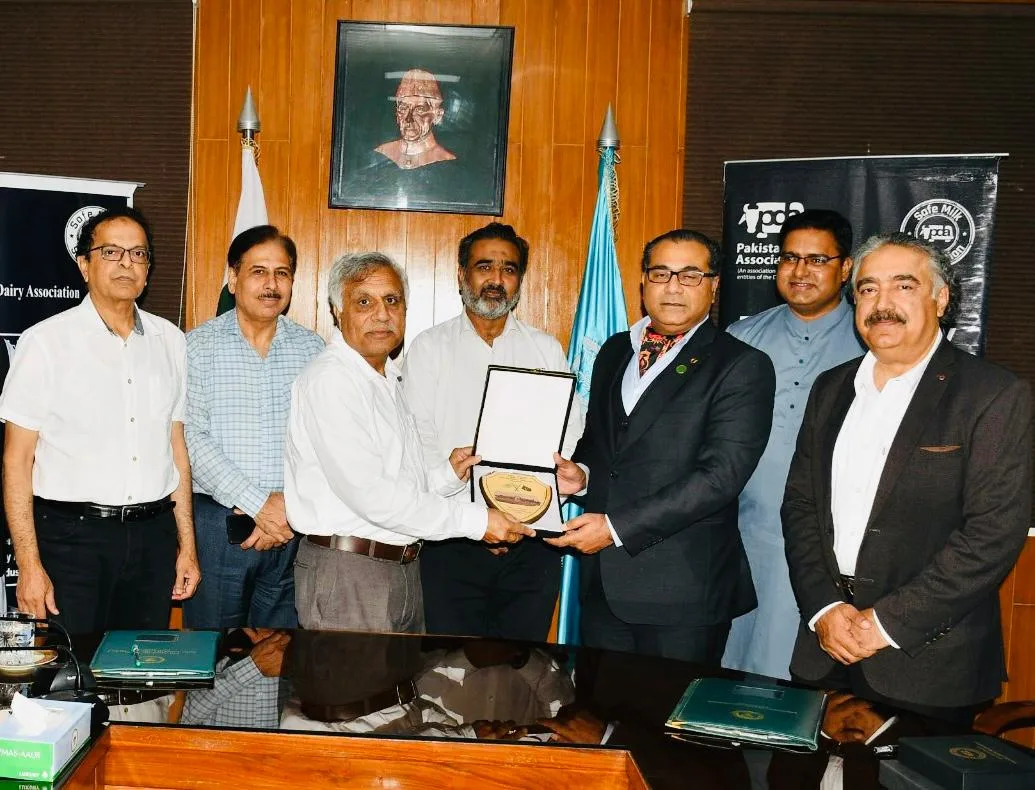
Pakistan Dairy Association (PDA) and Pir Mehr Ali Shah Arid Agriculture University, Rawalpindi have signed a memorandum of understanding aimed at bridging the gap between academia and industry.
The agreement was formally signed in Islamabad by Dr. Shehzad Amin, CEO of PDA, and Prof. Dr. Qamar-uz-Zaman, Vice Chancellor of the university. The partnership sets the stage for long-term cooperation in areas critical to the sector’s growth, including farm productivity, applied research, modern technology adoption, human resource development, and product innovation.
The signing ceremony was attended by senior faculty and PDA representatives, including Dr. Nasir of FrieslandCampina Engro Pakistan Ltd and Dr. Zubair from PDA. Discussions during the event centred on defining a practical roadmap to align academic insight with commercial challenges.
Dr. Qamar called for a joint four-year strategy focused on high-impact, evidence-based initiatives that could address both operational and policy needs.
Objectives of Partnership:
This collaboration marks a step toward building a knowledge-driven dairy ecosystem. Farmers stand to benefit from productivity gains and hands-on training, while students will access real-world research opportunities. For the industry, the partnership promises policy support grounded in science and the potential for meaningful innovation.
With a shared commitment to food security, innovation, and capacity-building, the agreement lays the groundwork for a more resilient and technology-focused dairy sector in Pakistan.
More than 1,700 Africans from 36 countries across the continent have joined Russia in its…
Deputy Prime Minister and Foreign Minister Ishaq Dar is set to attend a crucial three-day…
In a surprising turn of events, Cardi B and Stefon Diggs' whirlwind romance has come…
US Tariffs Upgraded: Administration Prepares to Increase Duties Further The United States has announced that…
New Zealand advanced to the semi-finals of the T20 World Cup on Wednesday after a…
Americans face a mounting financial burden as digital subscription services cost significantly more today compared…
This website uses cookies.